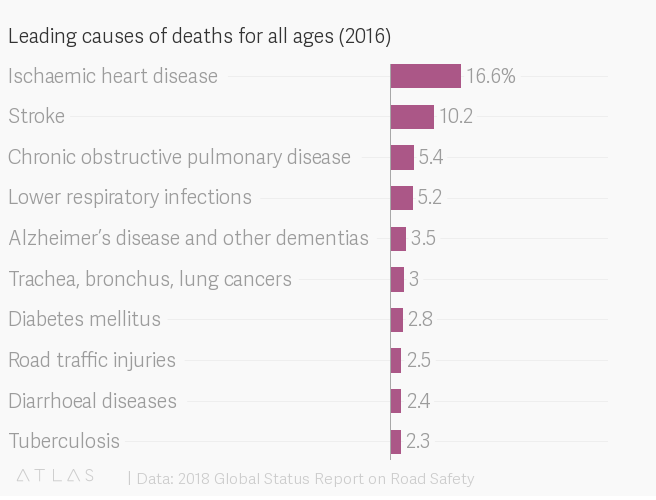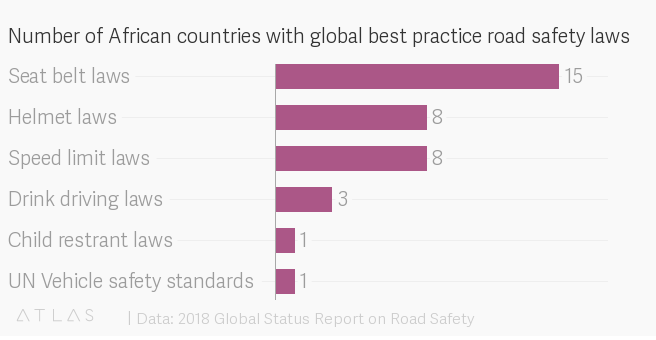Death rates from traffic accidents are higher in Africa than anywhere else

Globally, deaths have increased as well.
Image: REUTERS/Akintunde Akinleye
Stay up to date:
Africa
Sub-Saharan Africa is the global capital for road traffic deaths.
Indeed, there has been no progress in reducing the number of deaths from road traffic incidents in any low-income country between 2013 and 2016, according to the World Health Organization’s 2018 Global Status Report on Road Safety.
Globally, the number of road traffic deaths have continued to increase, reaching 1.35 million in 2016, the latest data show. Road traffic deaths are now the eighth-leading cause of death for all age groups—killing more people than tuberculosis and HIV/AIDS—and the leading cause of death for children and young adults between the ages of 5 and 29.
While some countries have made progress with regard to post-crash care and have passed legislation to regulate road traffic risk factors such as vehicle safety standards, the improvements haven’t keep up with the “motorization of transport” trend and rising population growth. At the current pace, the WHO estimates that the target of halving road traffic deaths by 2020—one of the United Nations’ Sustainable Development Goals—will not be met.
As the report points out, there’s a significant link between the risk of road traffic deaths and a country’s income level. While road traffic deaths in high-income countries average 8.3 deaths per 100,000 people, in low-income countries the average is 27.5 deaths per 100,000—a more than three-fold increase.
While 13% of road traffic deaths occur in low-income countries, these countries are home to only 1% of the world’s vehicles. The main factor in Africa’s road-death statistics? Substandard road safety laws. A major of African countries have lax rules on speed limits, child restraints, and drunk driving. Only a handful of countries on the continent have adopted rules that are considered best practice globally.
Meanwhile, the healthcare shortcomings in many African countries means that those who survive traffic accidents have no guarantee of adequate post-crash care. As the report puts it: “The proportion of patients who die before reaching a hospital in low-income countries is over twice that in high-income countries.”
Don't miss any update on this topic
Create a free account and access your personalized content collection with our latest publications and analyses.
License and Republishing
World Economic Forum articles may be republished in accordance with the Creative Commons Attribution-NonCommercial-NoDerivatives 4.0 International Public License, and in accordance with our Terms of Use.
The views expressed in this article are those of the author alone and not the World Economic Forum.
Forum Stories newsletter
Bringing you weekly curated insights and analysis on the global issues that matter.
More on Geographies in DepthSee all
Yusuf Maitama Tuggar
July 10, 2025
Kaiser Kuo
June 24, 2025
Kaiser Kuo
June 19, 2025
Aimée Dushime
April 18, 2025
Samir Saran and Anirban Sarma
April 17, 2025
Nada AlSaeed
April 16, 2025








